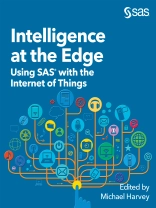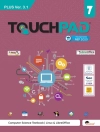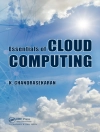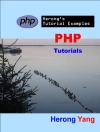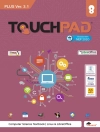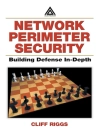Explore powerful SAS analytics and the Internet of Things!
The world that we live in is more connected than ever before. The Internet of Things (Io T) consists of mechanical and electronic devices connected to one another and to software through the internet. Businesses can use the Io T to quickly make intelligent decisions based on massive amounts of data gathered in real time from these connected devices. Io T increases productivity, lowers operating costs, and provides insights into how businesses can serve existing markets and expand into new ones.
Intelligence at the Edge: Using SAS with the Internet of Things is for anyone who wants to learn more about the rapidly changing field of Io T. Current practitioners explain how to apply SAS software and analytics to derive business value from the Internet of Things. The cornerstone of this endeavor is SAS Event Stream Processing, which enables you to process and analyze continuously flowing events in real time. With step-by-step guidance and real-world scenarios, you will learn how to apply analytics to streaming data. Each chapter explores a different aspect of Io T, including the analytics life cycle, monitoring, deployment, geofencing, machine learning, artificial intelligence, condition-based maintenance, computer vision, and edge devices.
Tentang Penulis
Michael Harvey is a Principal Technical Writer at SAS, serving as documentation project leader for the Internet of Things (Io T). Previously, Michael worked as a manager and a writer for EMC. He also teaches Information Architecture for the Duke Continuing Studies Technical Writing professional certificate program.
Michael has a BA in English and Psychology from the University of North Carolina at Chapel Hill and an MA in Experimental Psychology from Duke University. He has served in various leadership positions for the Carolina chapter of the Society for Technical Communication (STC) and has presented at local and international STC conferences. He was honored to be named an STC Fellow in 2011. As an instructor for the Durham Technical Community College Technical Writing program in the late 1980s and early 1990s, Michael worked to overhaul the curriculum, emphasizing the importance of developing technical curiosity and acquiring technical expertise.
